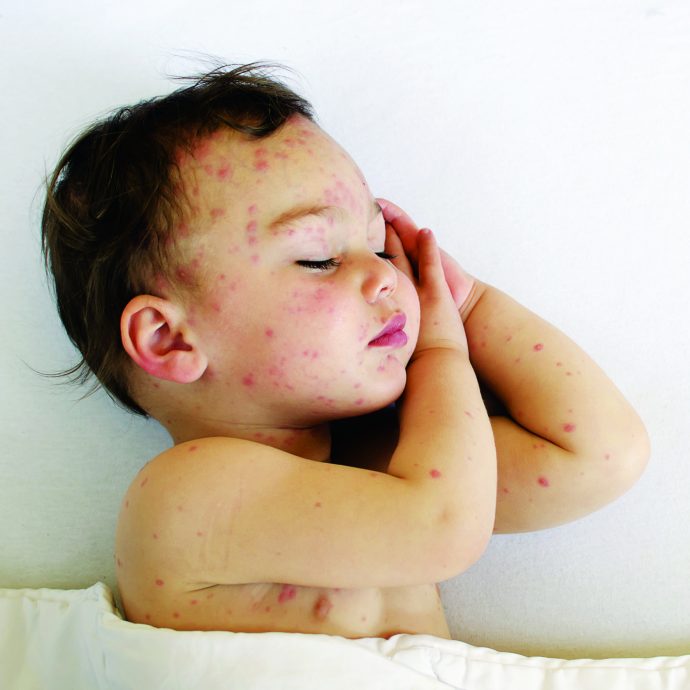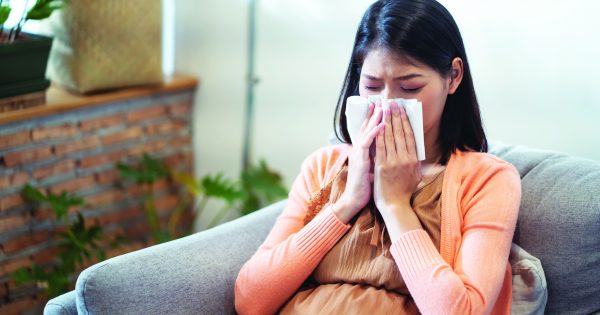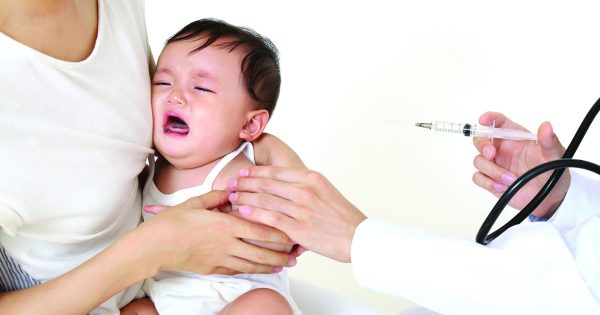Smallpox, chickenpox, cowpox, and monkeypox are all “pox” diseases, referring to skin infections with eruptive sores. But chickenpox is different from the others that caused by orthopoxviruses; it is actually caused by the varicella-zoster virus, which only infect human.
Chickenpox 101
Chickenpox (also known as varicella) is a viral infection that causes itchy rashes with small, fluid-filled blisters. The varicella-zoster virus is highly contagious and up to 90% of unimmunised individuals who are exposed to the virus can get infected. About 90% of all cases occur in young children, especially those under two years old. But older children and adults who have never been infected or vaccinated are also at risk of being infected.
Chickenpox is spread through direct contact with the rash or blister fluids from an infected individual. It also can spread by breathing in respiratory droplets (i.e. from coughs or sneezes) from an infected person. An infected person can spread the disease one to two days before the rash appears until all blisters have dried and formed crusts.
The most common and identifiable chickenpox symptom is an itchy rash. Some general symptoms may appear a few days before the rash, such as:
- Fever
- Loss of appetite
- Headache
- Body ache
- Fatigue
Chickenpox rashes can appear 10 to 21 days after exposure to the virus and typically last about 5 to 10 days. The rash will appear on the face, chest, and back first, but it can spread to the rest of the body too. In some cases, the rash can form in the mouth, eyes, anus, or genitals.
The rash will undergo three phases:
- Papules: Raised bumps, which break out over a few days.
- Vesicles: Small fluid-filled blisters, which later will break and leak.
- Scabs: Crusts that cover the broken blisters and will heal in a few days.
- During the course of the disease, all three rash phases may appear at the same time at different parts of the body.
The effect of chickenpox
Apart from the itchy rashes and painful sores, chickenpox can also cause severe complications. Babies who have not yet been vaccinated are at a higher risk of developing chickenpox complications. Teens, adults and individuals with a weakened immune system due to cancer, HIV or other conditions are also at risk.
Here are some possible complications:
- Shingles: The varicella-zoster virus stays in one’s nerve cells for years after recovery from chickenpox. Then, the virus can become active again years later and cause shingles, which causes painful blisters that forms on either side of the body or face. Only people who had chickenpox can get shingles and the risk is higher in the elderly.
- Dehydration
- Secondary bacterial infections due to open wounds
- Toxic shock syndrome
- Encephalitis (brain inflammation)
- Reye’s syndrome (swelling of the brain and liver in children with chickenpox who take aspirin)
- Pneumonia
- Congenital varicella syndrome (in newborns whose mothers had chickenpox during pregnancy)
- Death (very rare)
In addition to the physical complications, chickenpox patients and their parents also have to deal with other consequences. For example, children with chickenpox should not attend day care, kindergarten or school to prevent the spread of infection to other children; hence, they may miss valuable lessons during their absence. Parents also have to incur medical expenses and take leave from work to care for their children.
| Managing chickenpox
Fortunately, in most cases, chickenpox is a mild disease in healthy children and can be managed at home. Here are some steps to manage chickenpox:
|
Protection against chickenpox
Vaccination is the best way to prevent chickenpox. The varicella-zoster vaccine is not included in the National Immunisation Programme but is available at private healthcare institutions. It is offered as the monovalent vaccine or as the quadrivalent vaccine MMRV, which protects against measles, mumps, rubella and chickenpox. The vaccine can be given to children as early as 12 months old. People working in childcare or school settings are also recommended to be vaccinated. Consult your doctor to learn more about chickenpox vaccinations.






